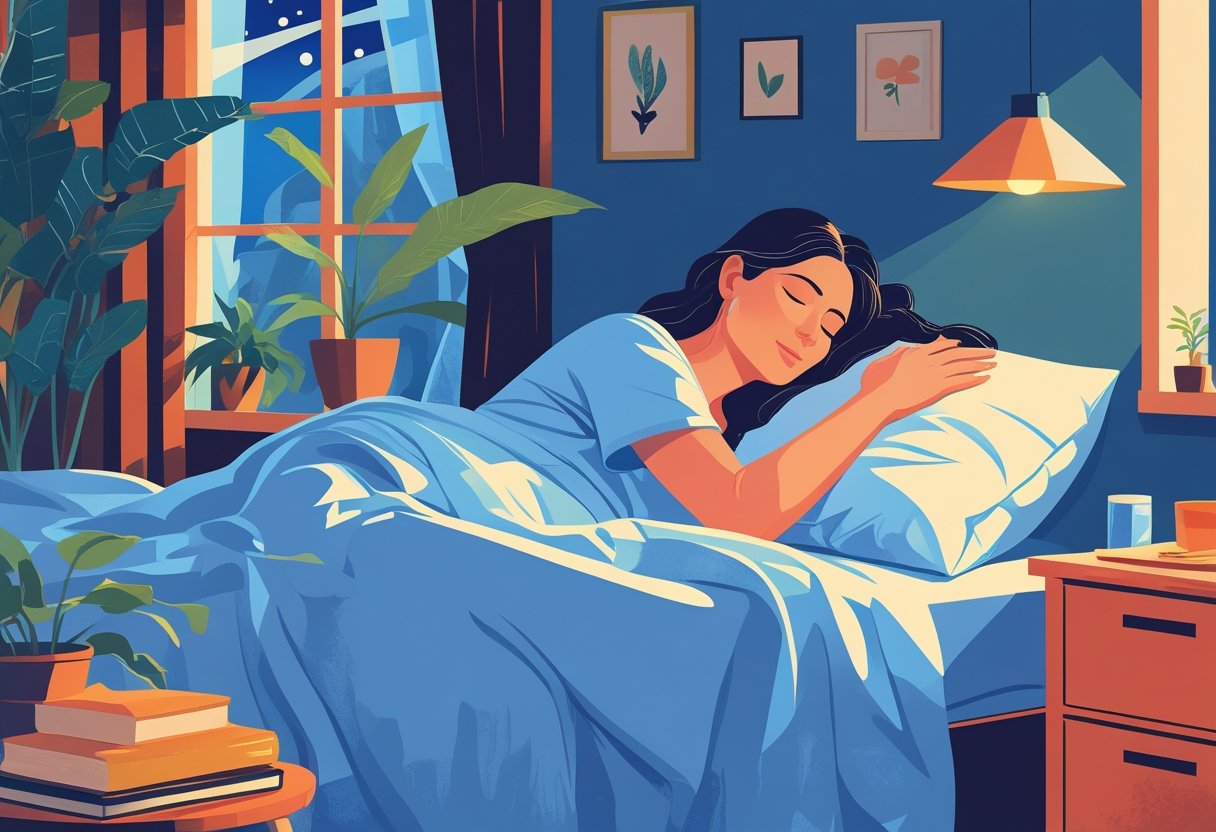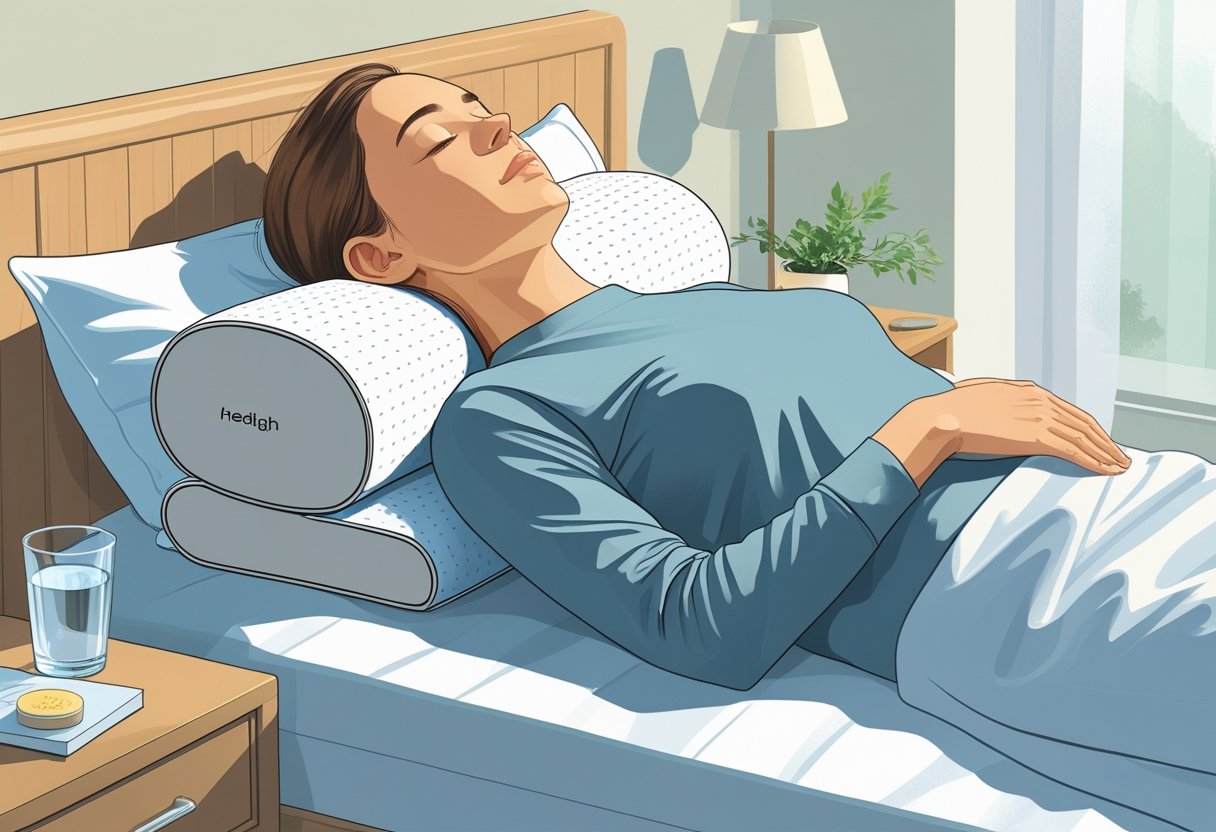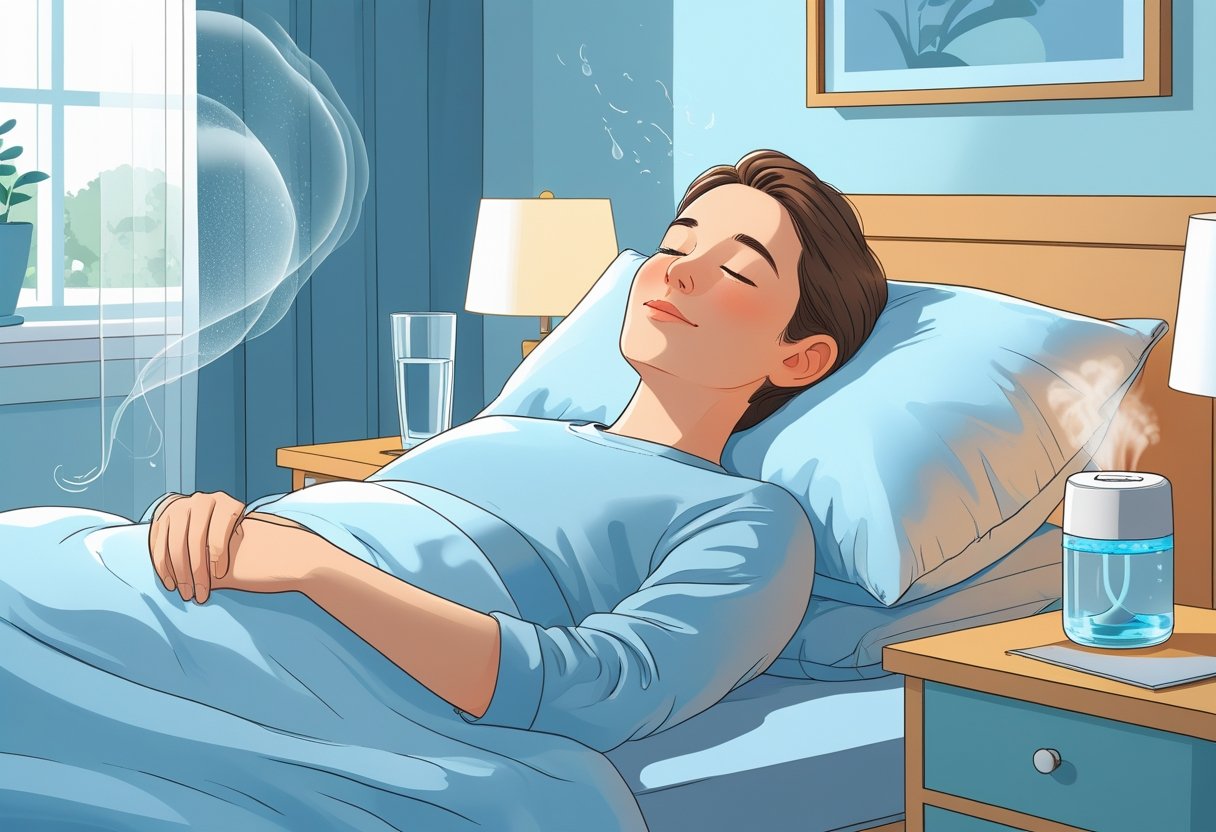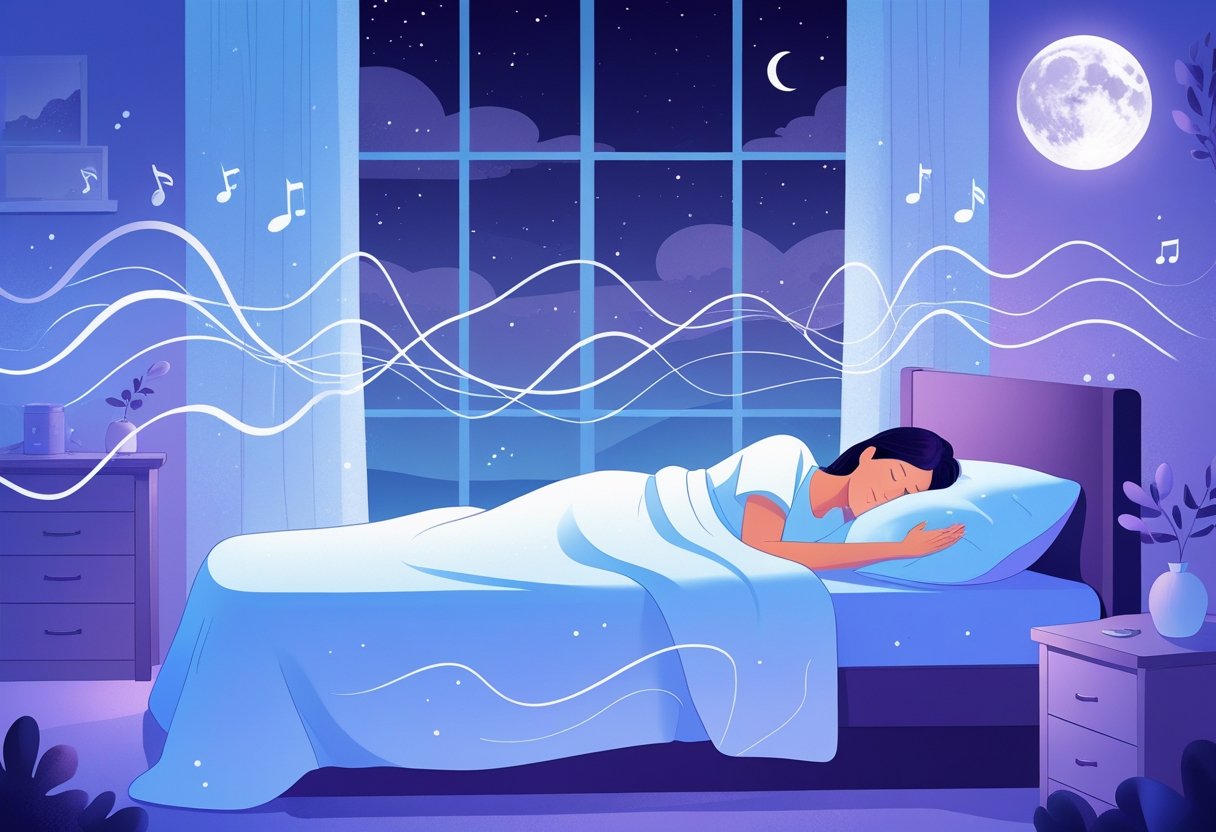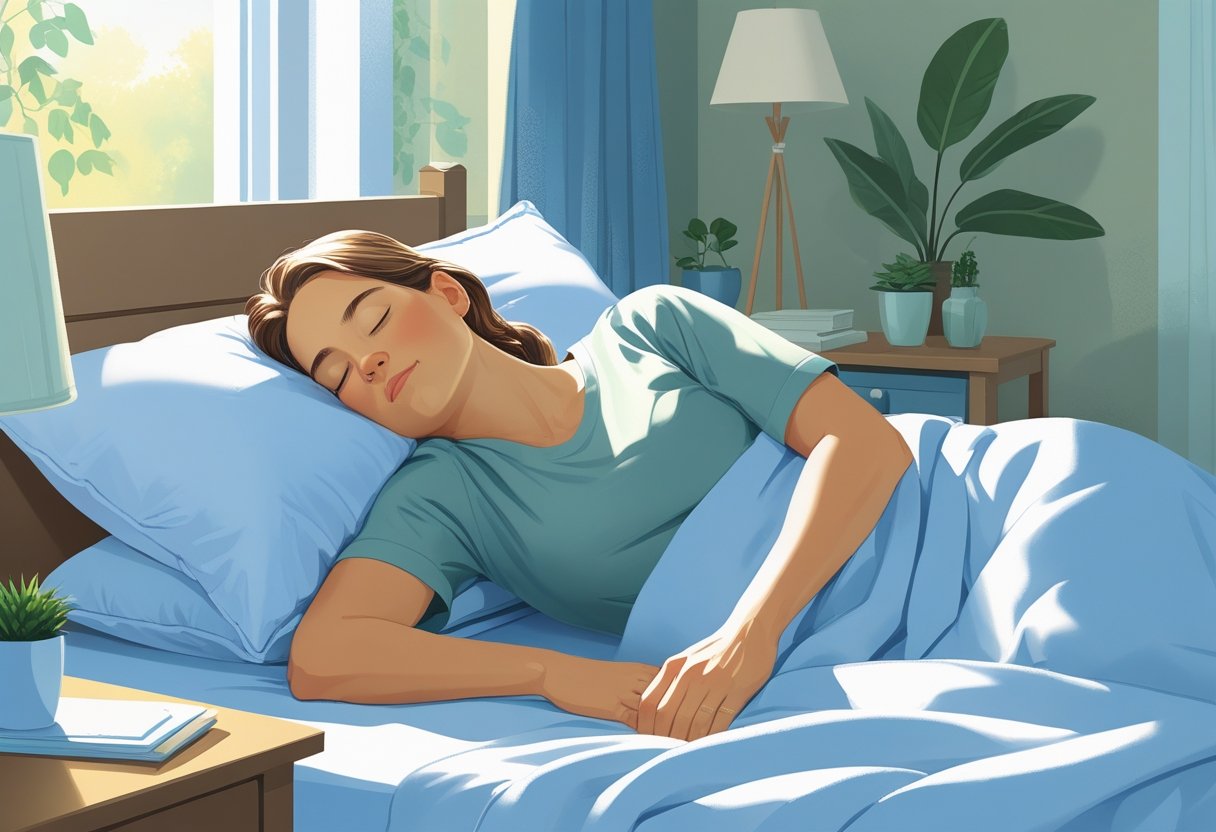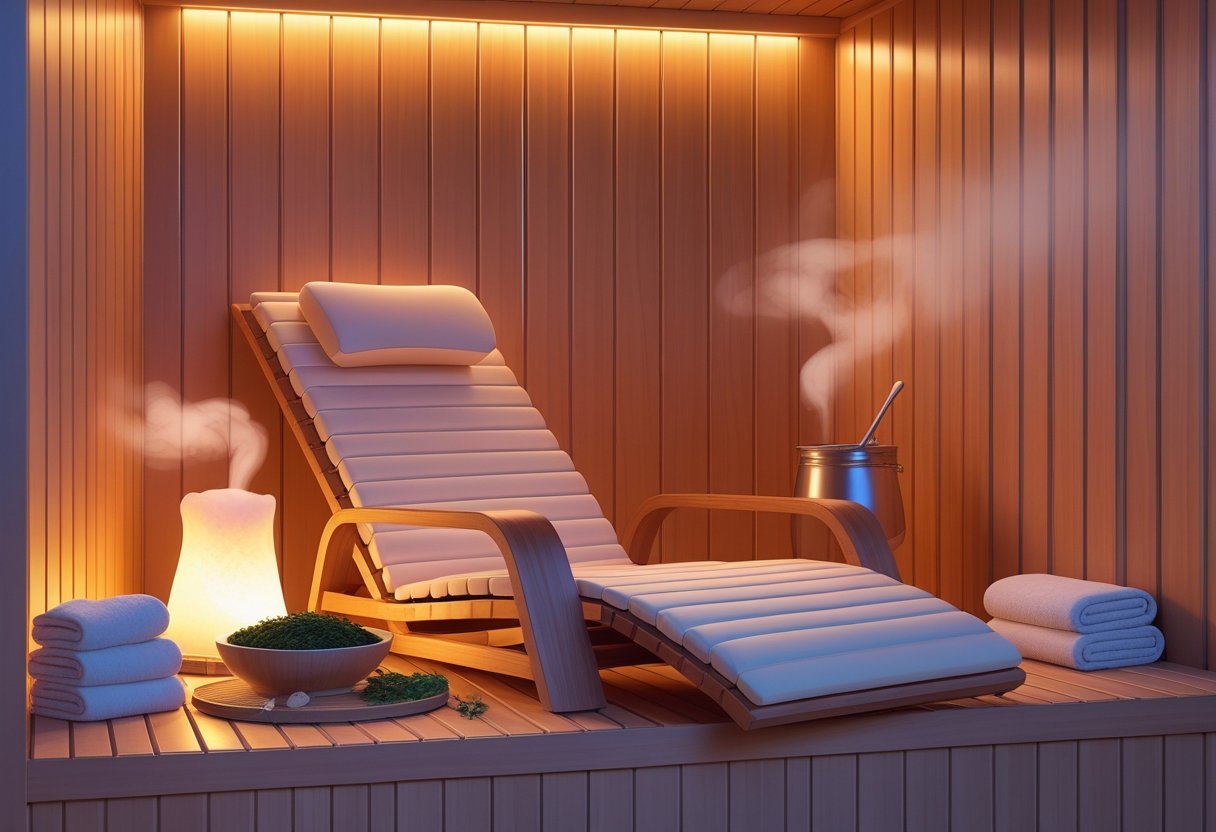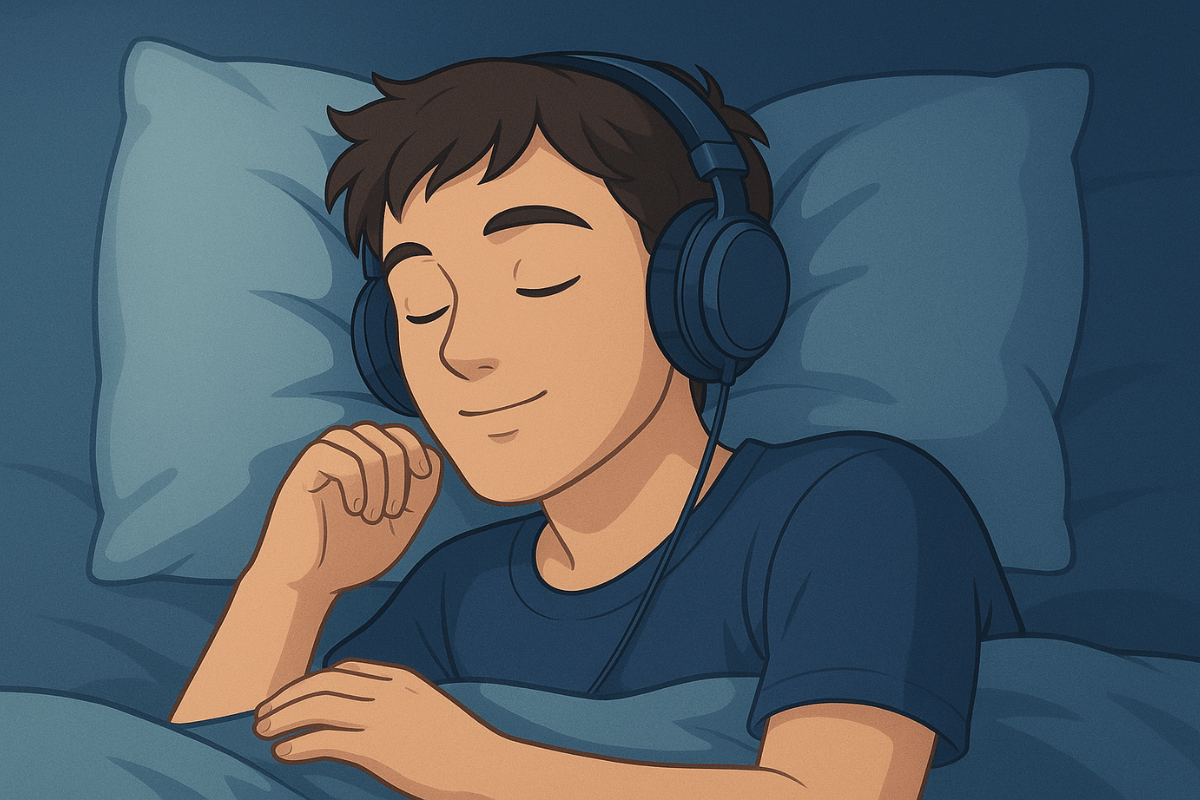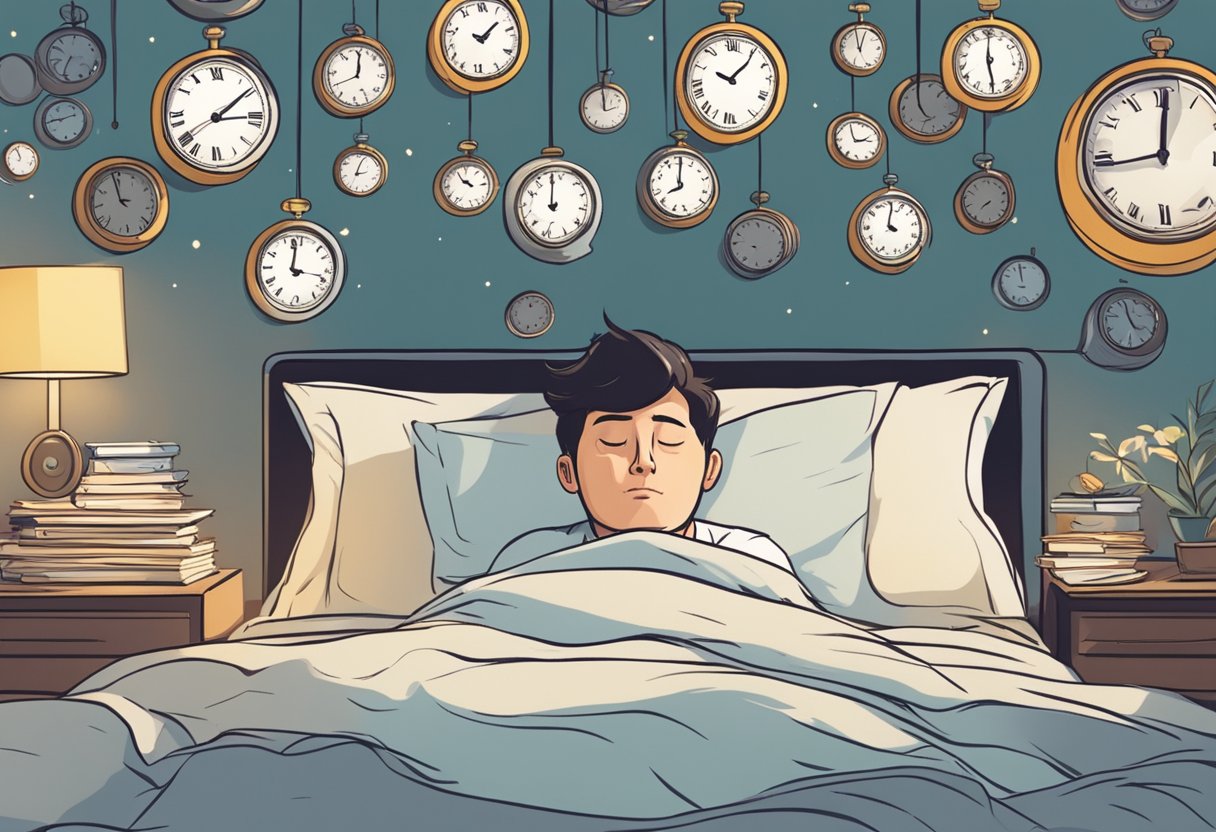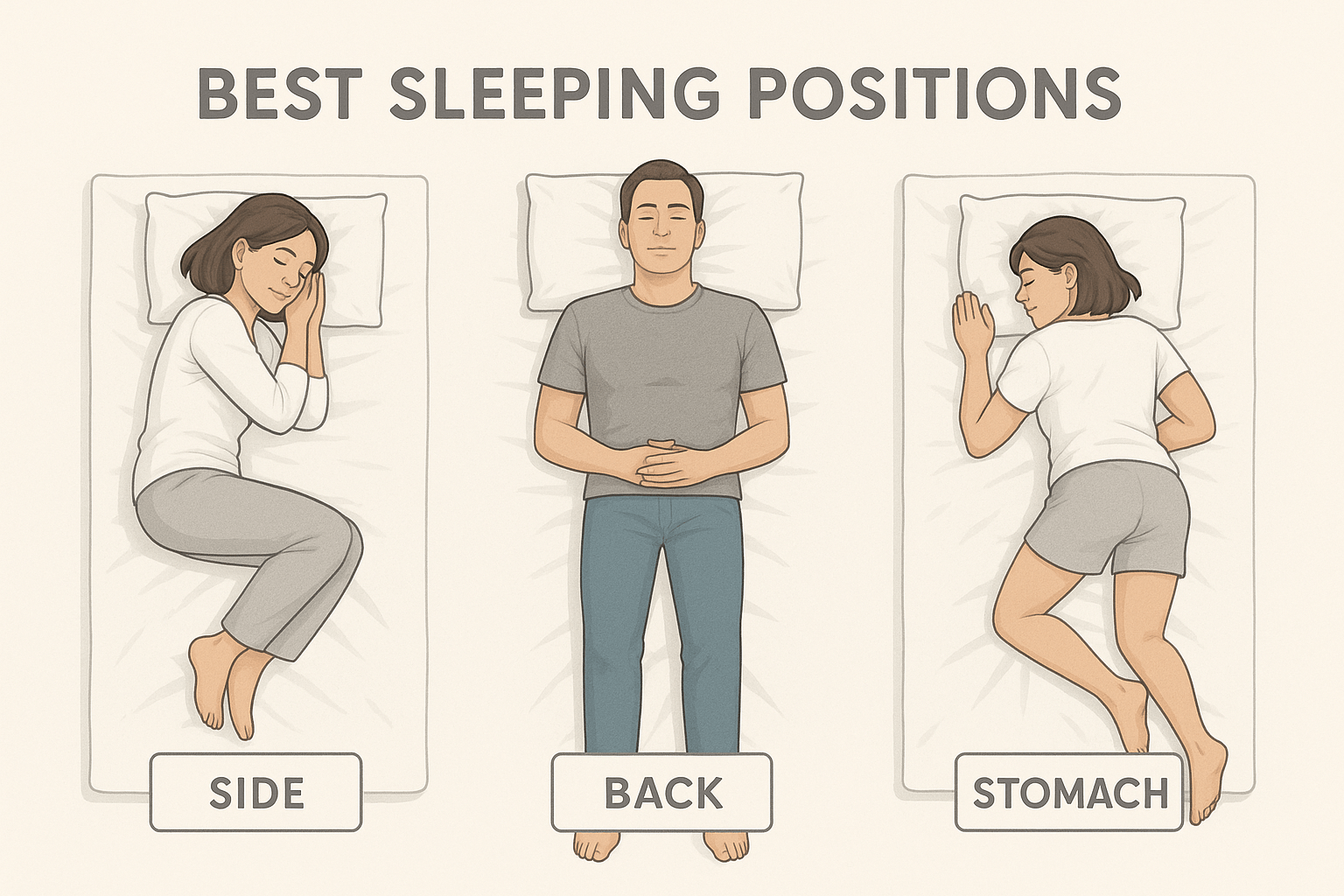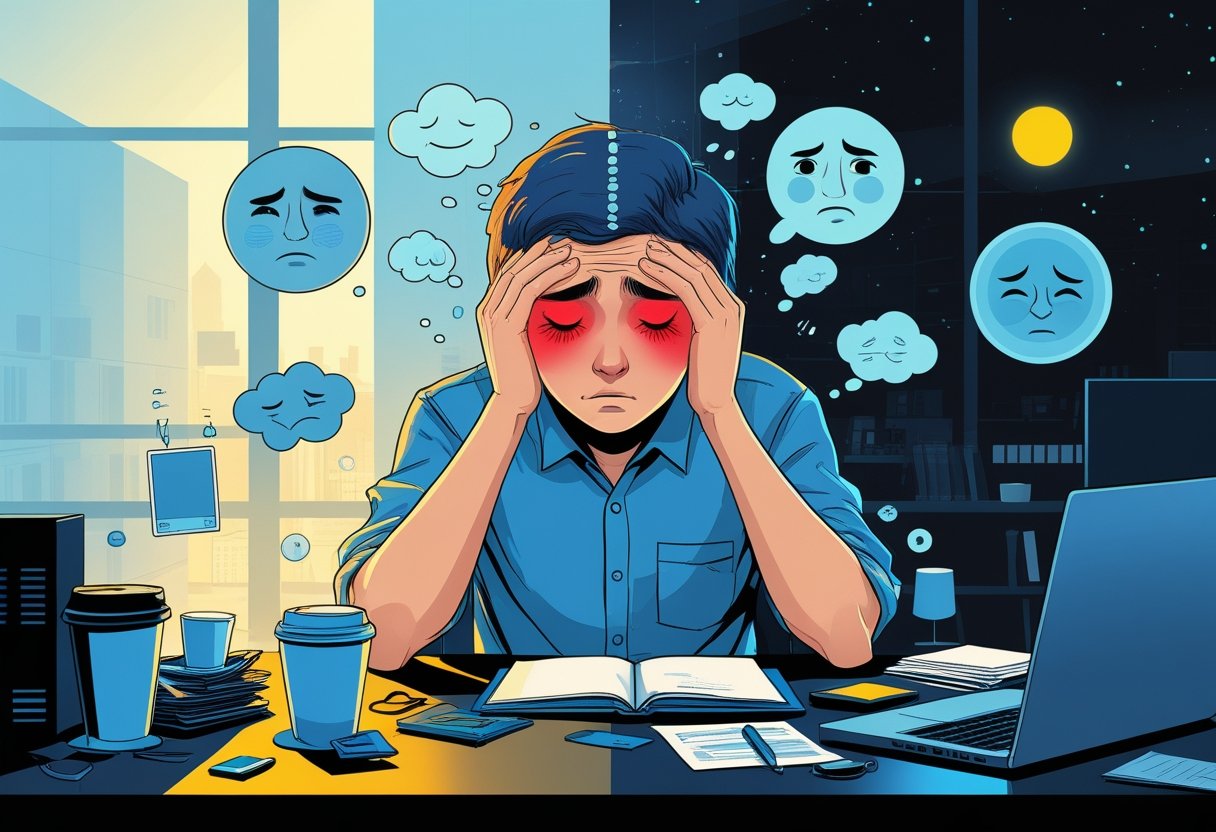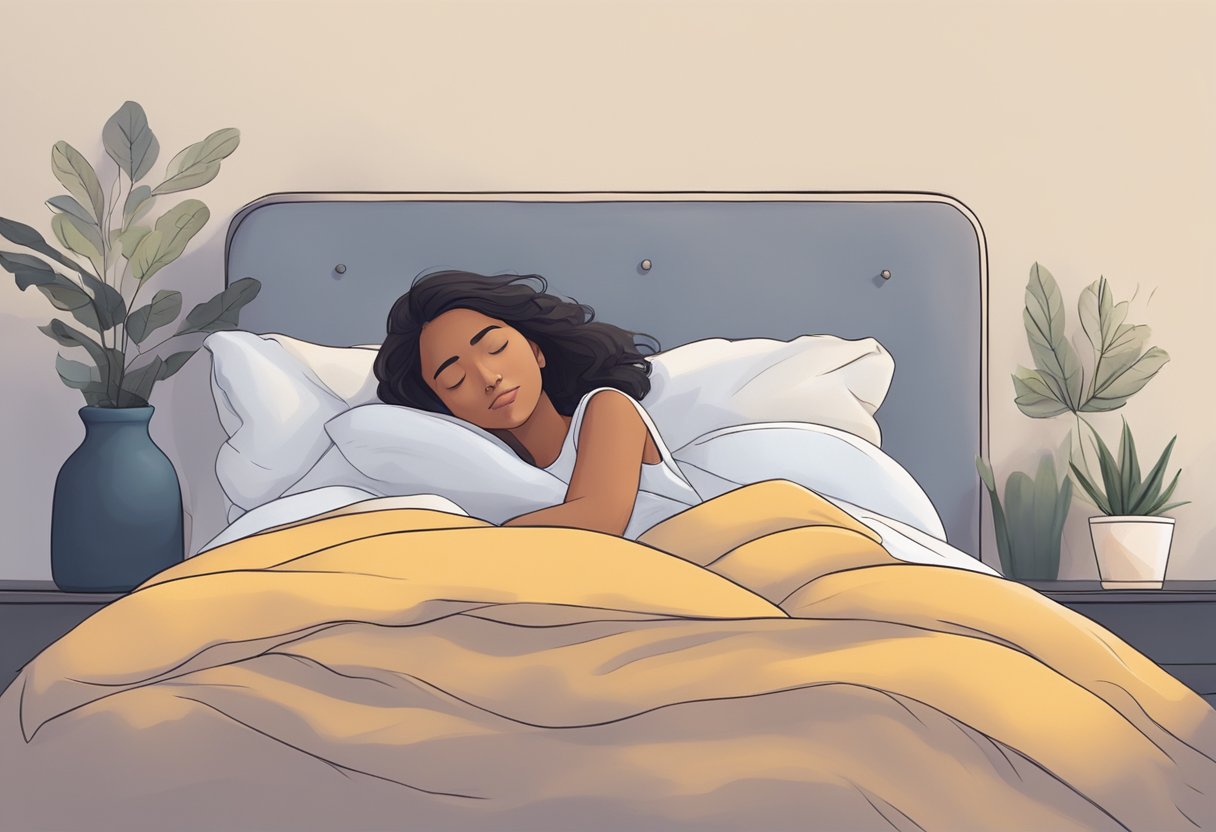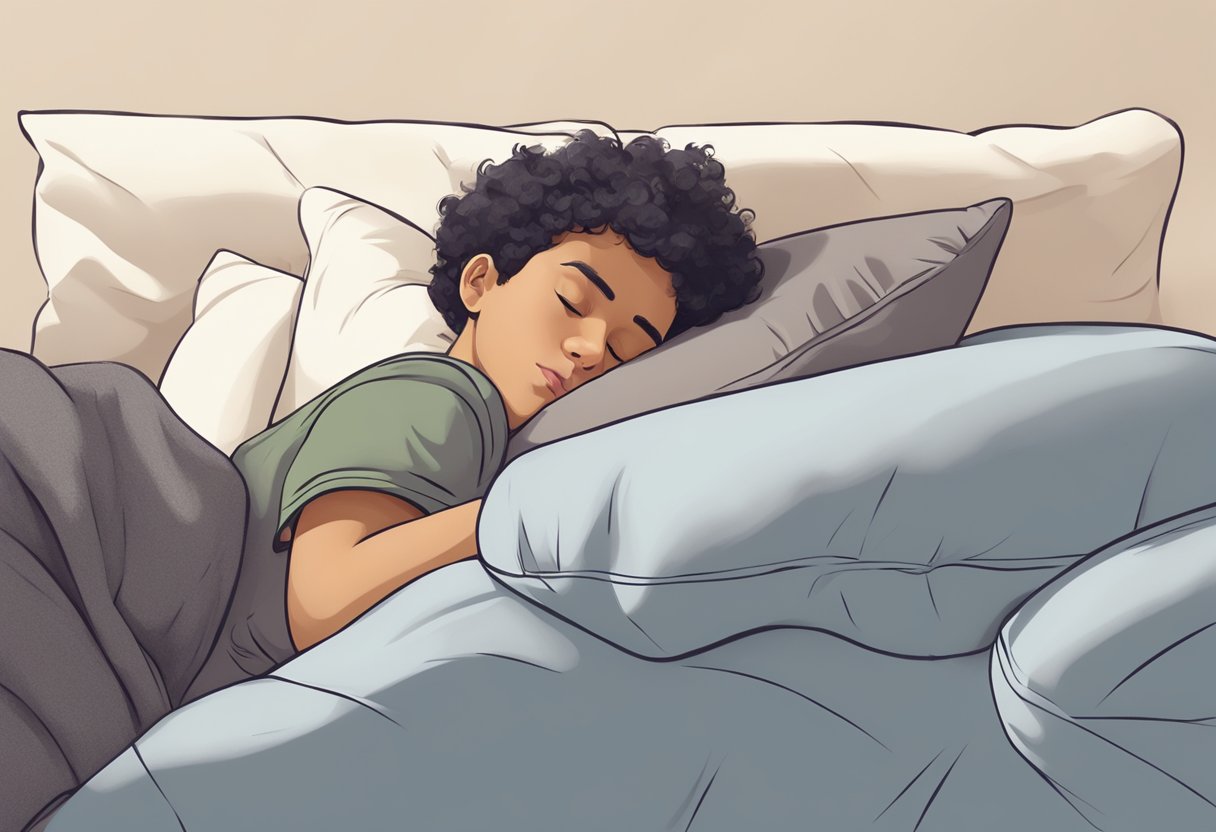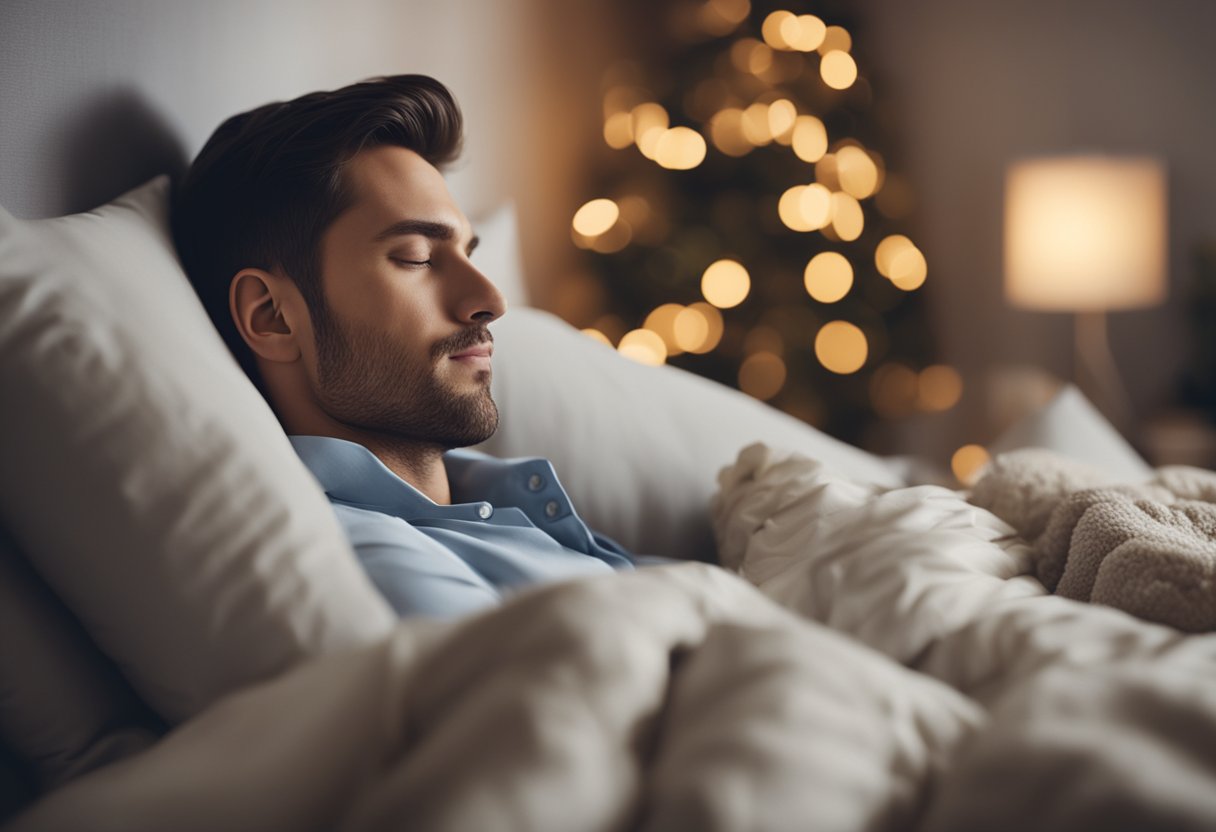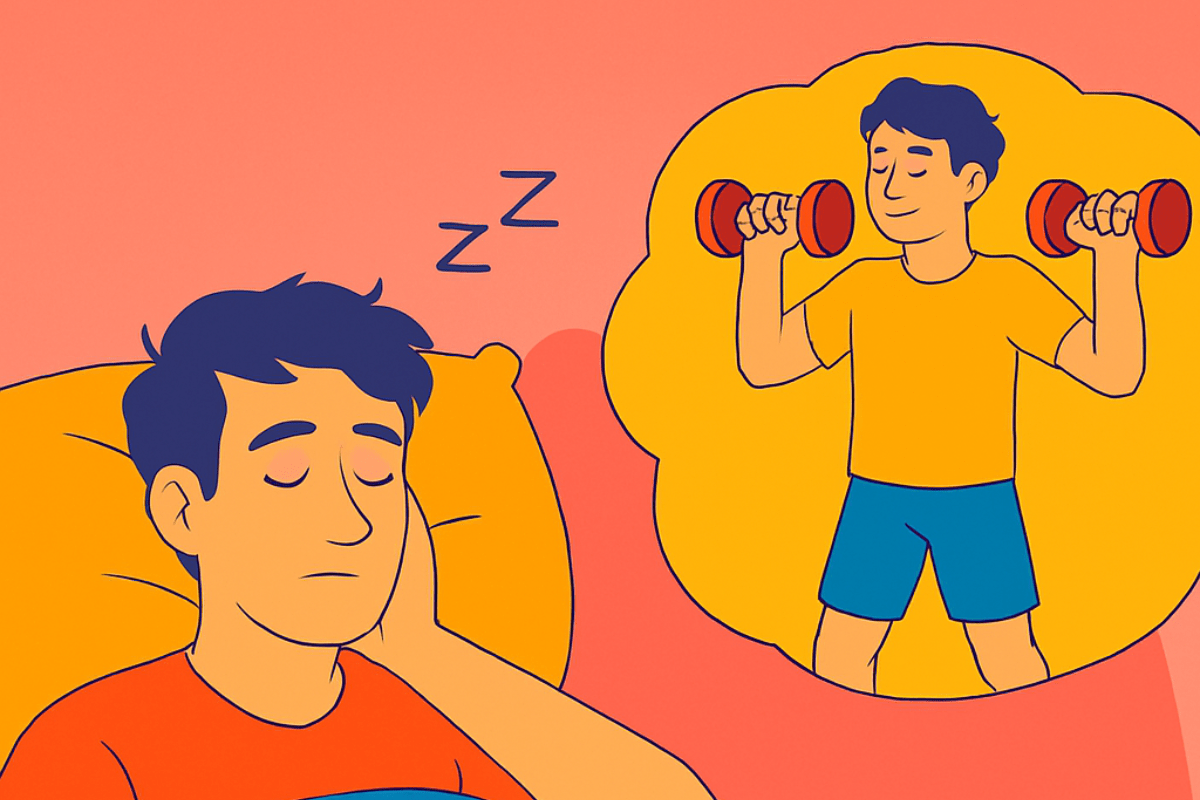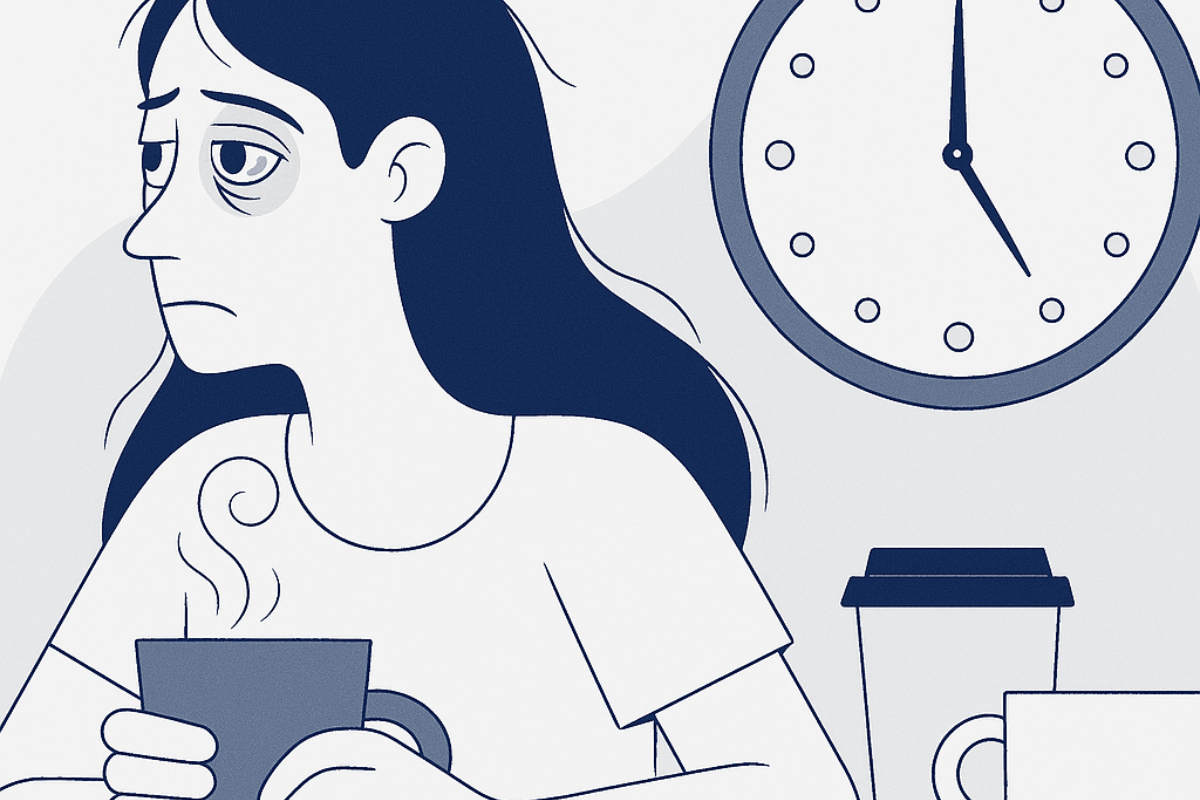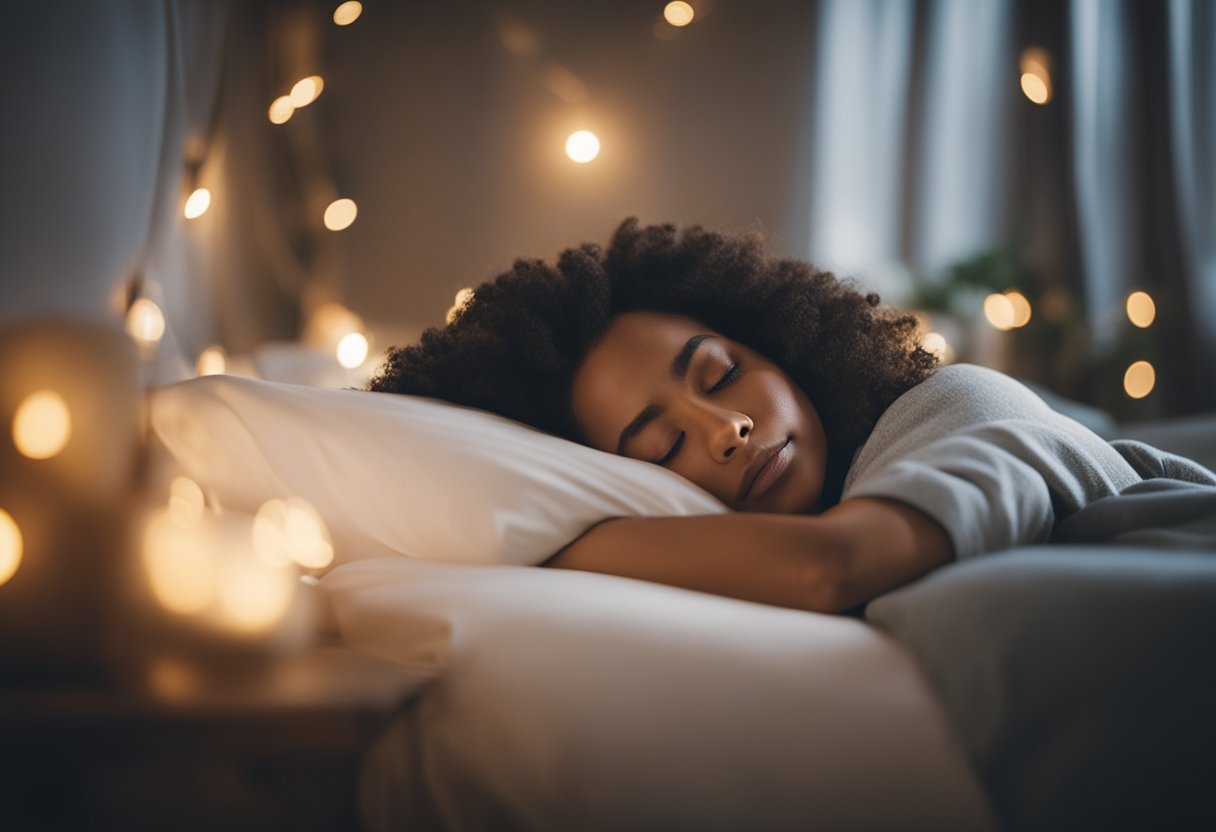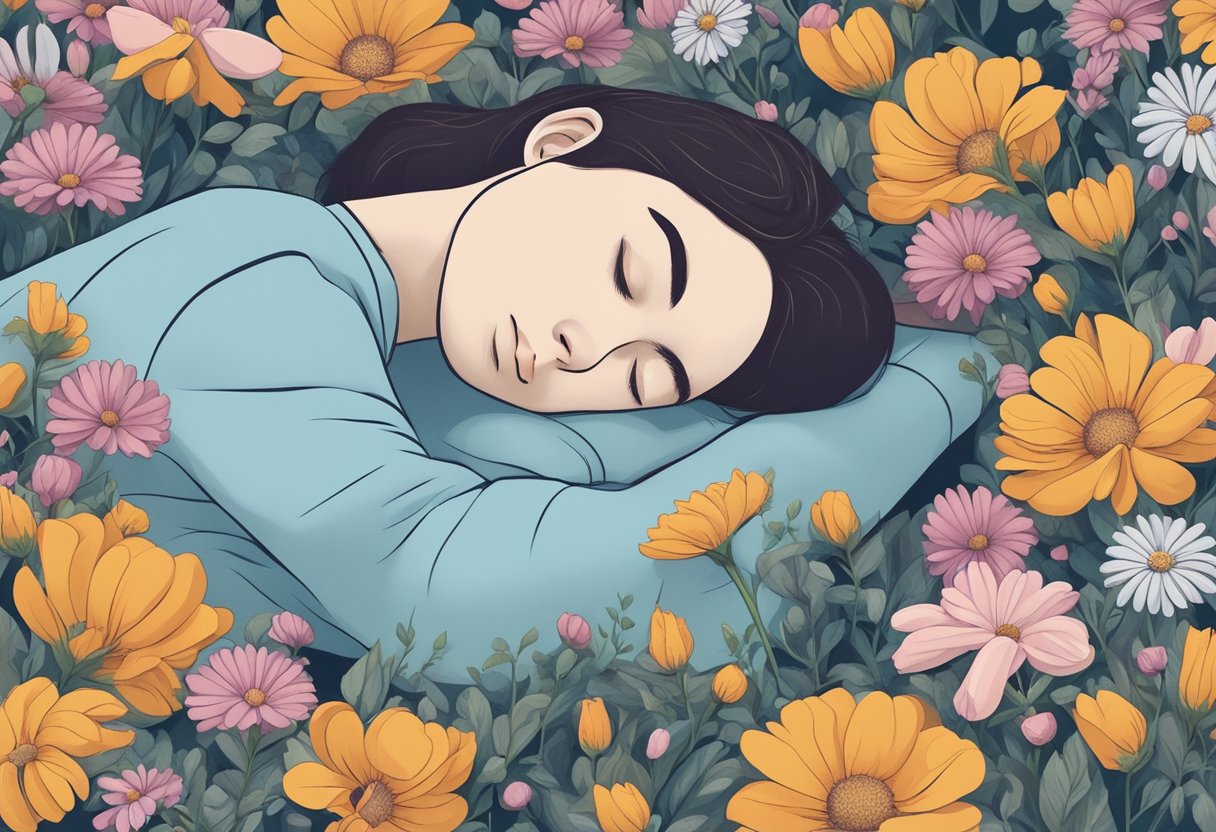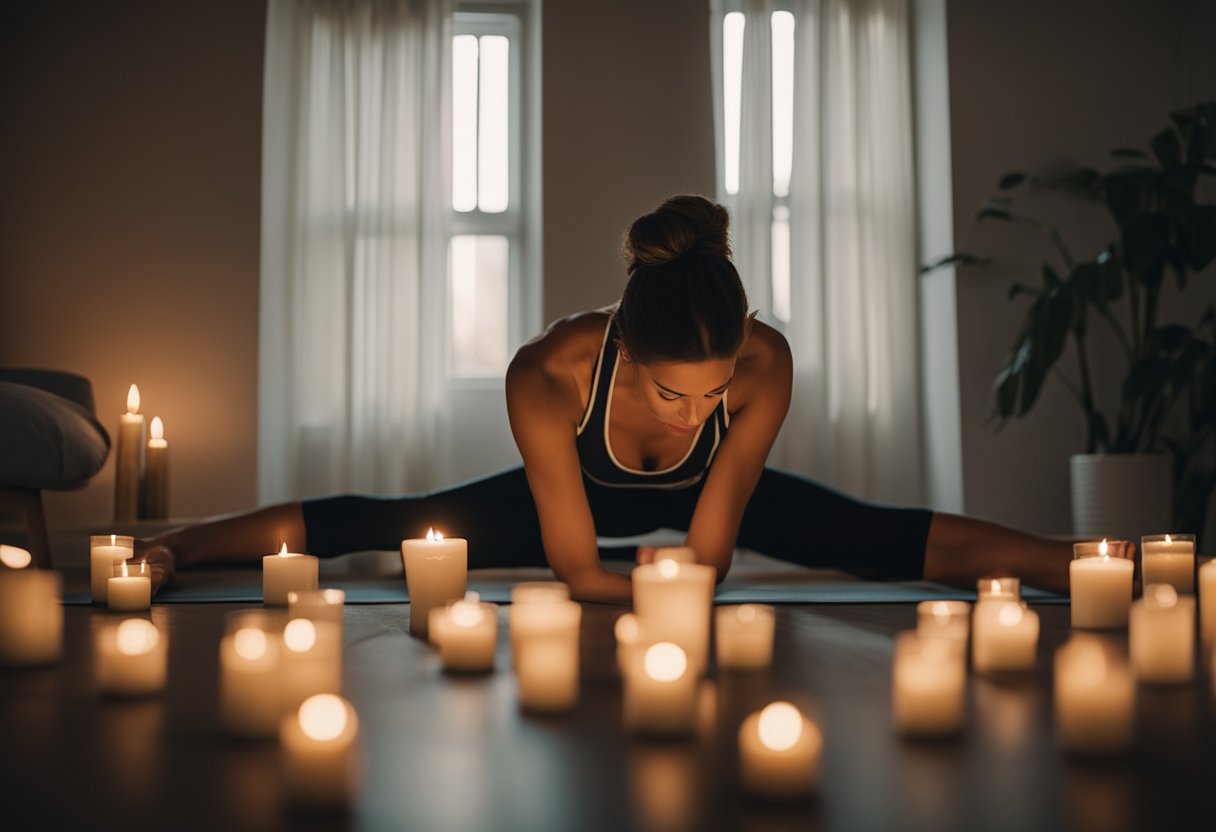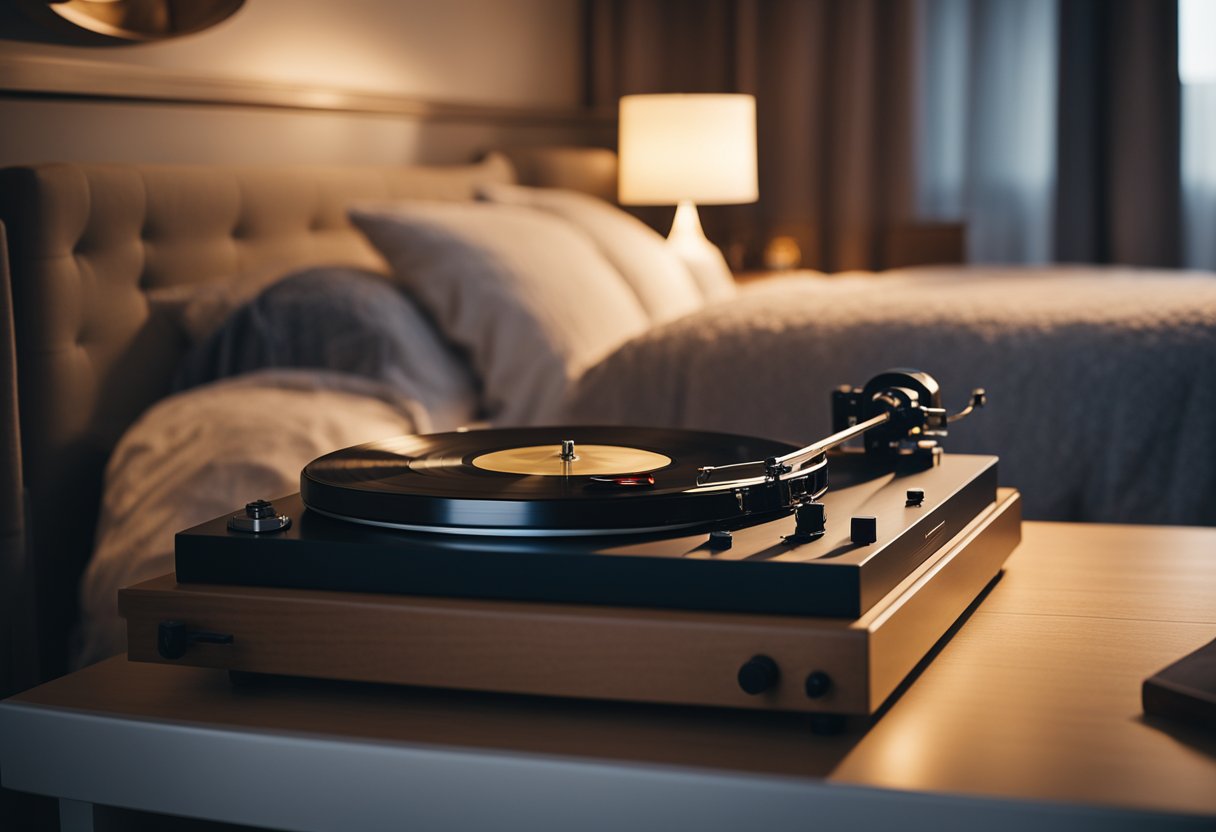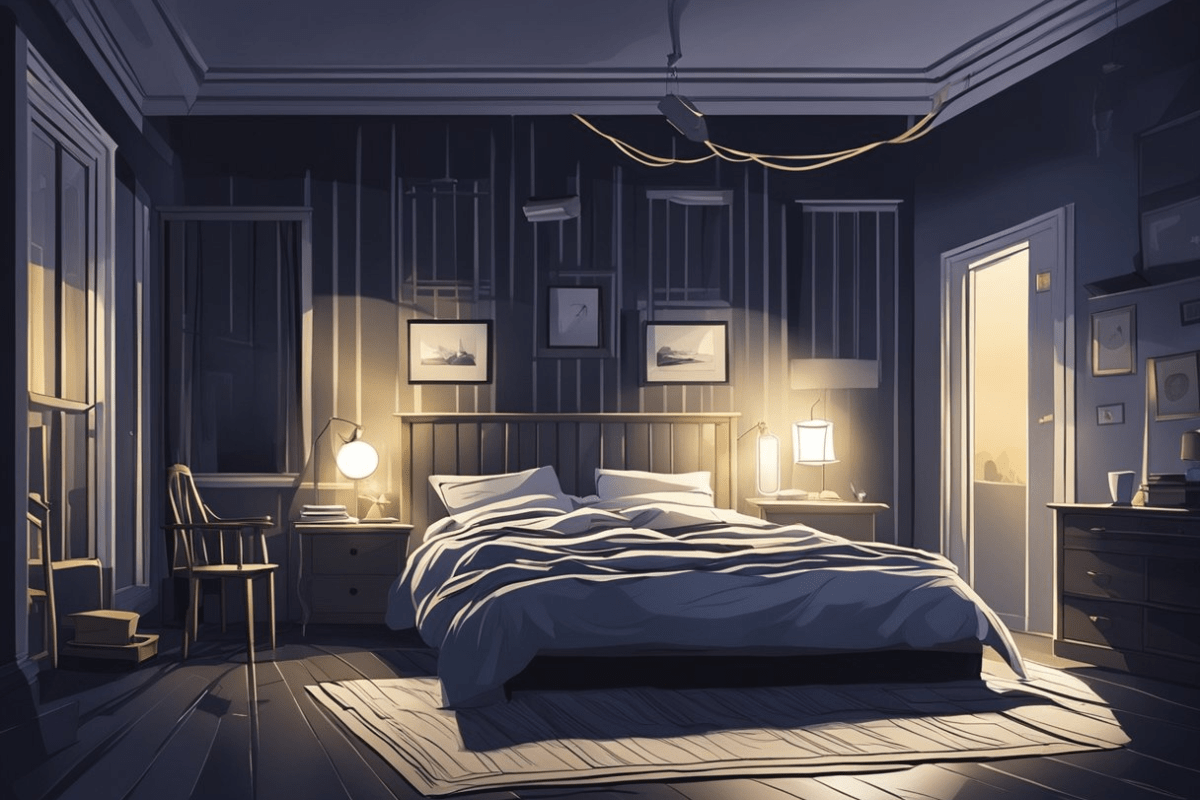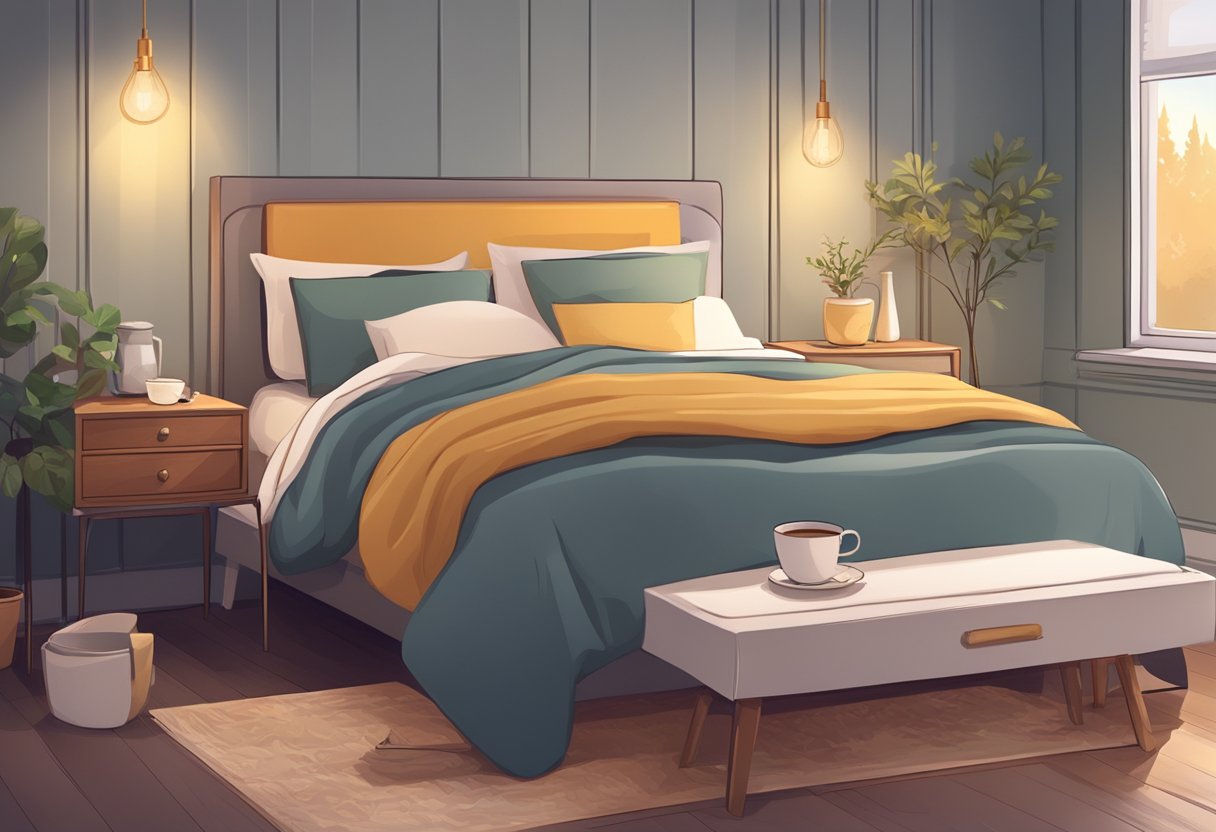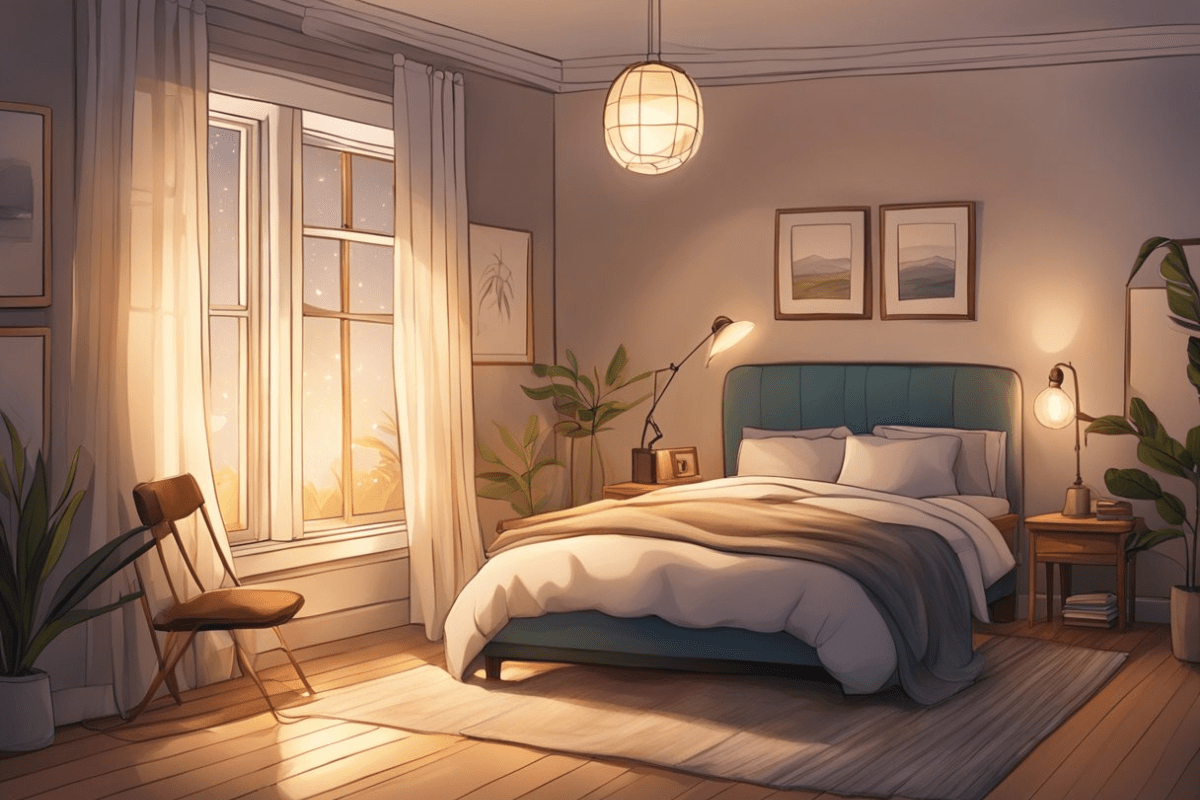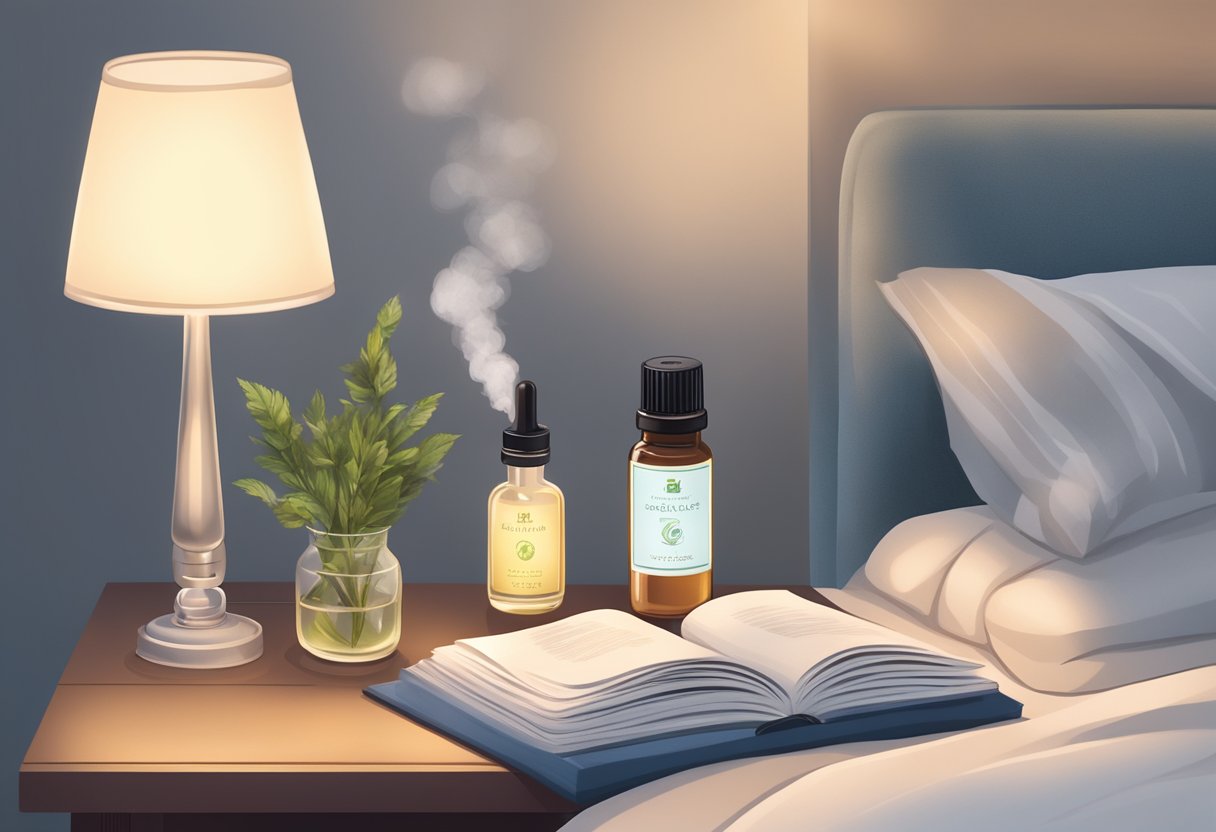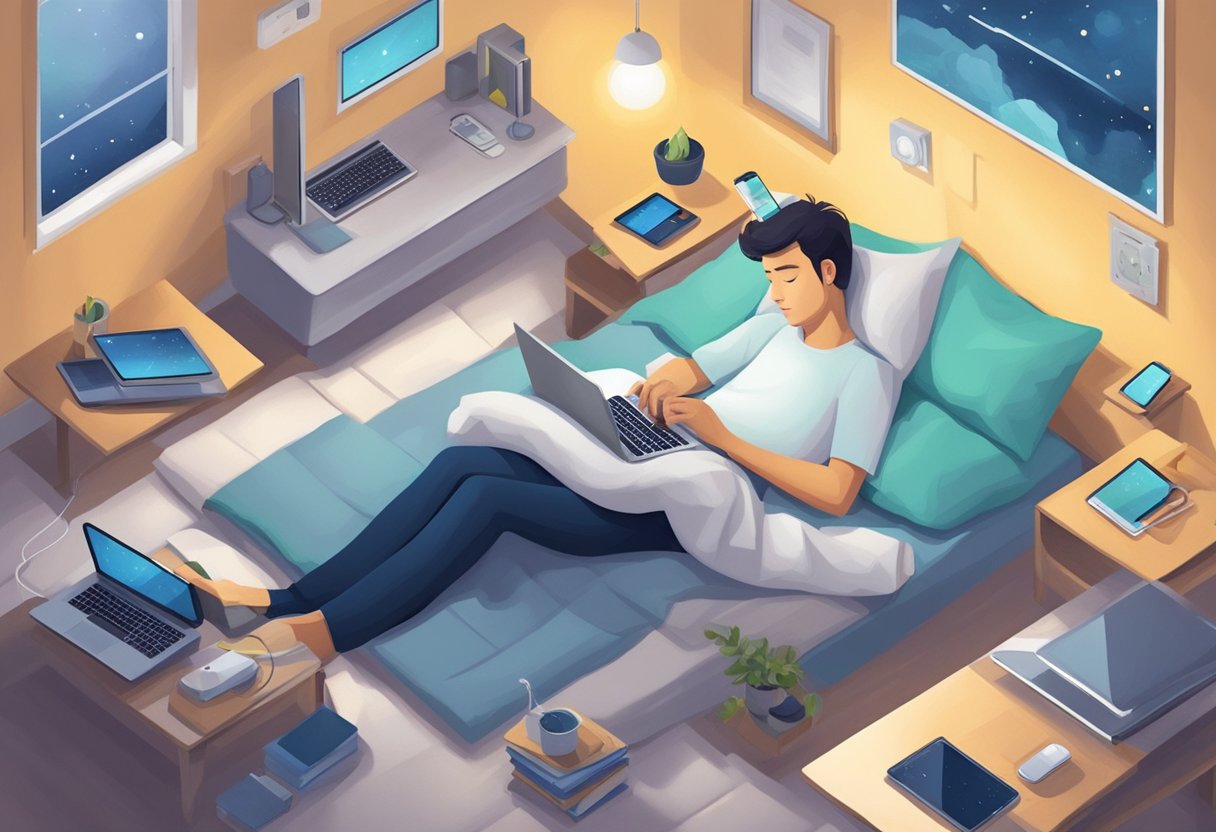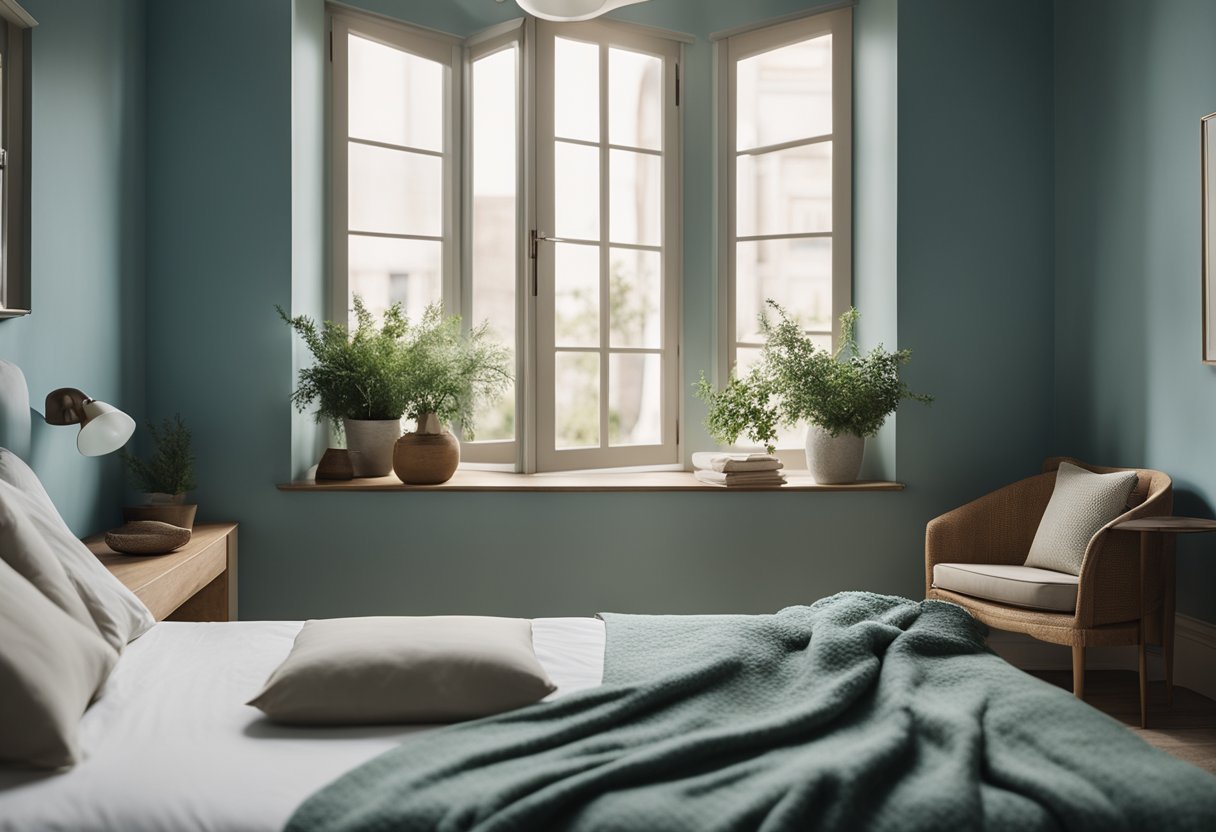Probiotics and Sleep: Does It Really Help With Sleep?
Many people struggle with sleep problems and seek natural ways to improve rest. Recent studies show that probiotics, good bacteria found in certain foods and supplements, can improve sleep quality. They may shorten the time it takes to fall asleep and minimize disturbances at night, which results in better overall rest. The connection between gut health and sleep has become increasingly clear. Probiotics affect the gut microbiome, which influences mood and sleep patterns. When the balance of gut bacteria stays healthy, probiotics can improve how well adults sleep, especially those dealing with mild sleep issues or disorders. Choosing
Best Sleeping Position for Sciatica: How to Alleviate Nerve Pain?
Sleeping well with sciatica is a challenge since the pain often intensifies when lying down. The best way to sleep with sciatica is to choose a position that maintains spinal alignment and relieves pressure on the nerve, such as lying on the back with the knees elevated or lying on the side with a pillow between the legs. These positions reduce discomfort and allow for better rest. Apart from sleeping positions, a supportive mattress and light stretching before bed may ease discomfort. Even small adjustments to how the body rests and recovers overnight can lead to better sleep
How to Sleep with Neck Pain: Effective Tips for a Restful Night
Neck pain can make it really hard to fall asleep and stay comfortable through the night. One of the best ways to sleep when your neck is hurting is to lie on your back or side with a supportive pillow that keeps your neck in line with your spine. Try to avoid sleeping on your stomach, since that position can put extra strain on your neck and make the pain worse. Having the right pillow can make a big difference. It fills the space between your neck and the mattress, giving your neck the support it needs and
What Happens If You Stay Up All Night? Effects on Body and Mind
Staying up all night and sleeping during the day can quickly alter the levels of various proteins in the blood, which impacts how the body functions. This disruption can disrupt the body’s natural clock, which can lead to issues with mood, focus, and overall health. Even a few days of this schedule can affect the body’s normal rhythms and lead to negative changes. Daytime sleep differs from nighttime sleep in terms of quality. It tends to be less restorative, meaning the brain and body may not get the full rest they require. Over time, this pattern can increase
How to Sleep with Post Nasal Drip: Effective Tips for Restful Nights
Post nasal drip makes sleeping difficult because mucus builds up and irritates the throat. The best way to sleep with post nasal drip involves elevating the head to prevent mucus from pooling and causing discomfort. This simple position helps reduce coughing and improves breathing throughout the night. Sleeping on the back with the head propped up on pillows is the most effective method. If one side feels more congested, sleeping on that side may provide relief. Staying hydrated and using a humidifier also thin mucus and ease symptoms at night, resulting in better overall comfort. Many people wake
Best Frequency for Sleep: Can Specific Frequencies Help You Fall Asleep?
Many people struggle to fall asleep or stay asleep through the night. One effective method to improve sleep quality involves listening to specific sound frequencies. The best frequencies for sleep tend to be low to mid-range tones like 432 Hz and 528 Hz, which promote relaxation and reduce stress. These frequencies calm the mind and body, which makes it easier to drift off naturally. Sounds such as binaural beats or Solfeggio tones at these frequencies encourage emotional balance and physical healing, which supports deeper and more restful sleep. Using these frequencies regularly before or during bedtime improves overall
What Side to Lay On for Digestion: Improve Gut Health While You Sleep
Choosing the right side to sleep on can make a big difference in your overall health and comfort during the night. Many experts suggest sleeping on the left side, as it helps reduce pressure on your internal organs and promotes better blood flow. This position can also aid digestion and may help alleviate issues like acid reflux. On the other hand, sleeping on the right side can be beneficial for those who struggle with heartburn, as it keeps the stomach elevated. Side sleeping, in general, helps keep your airway open, which can reduce snoring and even mild sleep
Sauna Before Bed: Benefits for Your Sleep and Health
Saunas can be a great way to improve sleep by helping the body relax and get ready for rest. When you use a sauna before bed, your body temperature rises, and as it cools down afterward, it signals the body to start producing melatonin — the hormone that helps you fall asleep. This natural process can lead to deeper, more restful sleep. A lot of people find that spending time in a sauna during the evening makes it easier to fall asleep faster and enjoy better sleep quality throughout the night. Studies show that regular sauna users often
Best Sleep Music: Top Genres and Playlists to Help You Fall Asleep
Many people have trouble falling asleep or staying asleep through the night. One simple way to improve sleep quality is by listening to music that’s meant to calm both the mind and body. Music can help quiet the brain, ease stress, and create a peaceful atmosphere, making it easier to drift off faster and enjoy deeper, more restful sleep. Certain types of music tend to work better for sleep, often featuring slow tempos, soft melodies, and gentle sounds. Things like rain sounds or soft piano can help block out distracting noises and guide the brain into a relaxed
Sleep Deprivation: Causes, Effects, and Solutions for Better Sleep
Lack of sleep can cause chills and aches. When someone doesn’t get enough rest, their body temperature regulation may be affected, which can lead to feelings of cold or shivering. Sleep deprivation also increases inflammation in the body, which often results in muscle and joint pain. Sleep deprivation directly affects the nervous system, increasing pain sensitivity and causing physical symptoms like chills and body aches. These symptoms do not come from fever but result from the body’s reduced ability to maintain normal functions when rest is insufficient. Understanding how lack of sleep triggers these symptoms allows individuals to
Best Sleeping Position for Breathing Problems: Improve Your Sleep
Choosing the best position to sleep can really make a difference in how rested and refreshed someone feels the next day. While comfort matters, experts generally agree that sleeping on your side is often the healthiest option. It can help reduce issues like snoring, heartburn, and back pain. For some people, sleeping on their back feels better for the neck and spine, though sleeping on the stomach is usually not recommended because it can strain the neck. The best sleep position can also depend on specific health needs, so it’s worth understanding these differences to help improve sleep
Shower Before Bed: Can It Improve Your Sleep?
Taking a cold shower before bed affects sleep differently depending on the person. Cold showers reduce muscle soreness and inflammation, however, they do not always make falling asleep easier. Some people say a cold shower relaxes them and cools the body, which improves sleep quality. Cold showers help improve sleep by lowering core body temperature and relieving muscle pain, however, they can also increase alertness, which might make it harder to fall asleep. Unlike hot showers, cold ones create distinct effects on the body’s temperature and mental state, so choosing the right type depends on individual needs. Knowing
Sex and Sleep: Connection, Effects and Benefits
Sex and sleep are more connected than most people realize. Having sex, especially before going to bed, can actually help you sleep better. It’s not just about feeling tired afterward — sex helps lower stress, balances hormones, and relaxes the body, all of which are important for good sleep. Whether it’s with a partner or solo, sexual activity can make it easier to fall asleep and stay asleep through the night. Many people notice they feel calmer and more ready to drift off after sex, which naturally leads to better rest. Knowing about this connection can be a
Can’t Sleep? Tips and Remedies to Get Some Sleep
Waking up early after a night of little or no sleep can feel overwhelming. If you can’t sleep within 20 minutes, it’s best to get out of bed and do something calming to relax the mind, then try again later. This prevents frustration and makes it easier to fall asleep upon returning to bed. Preparing for the morning ahead helps reduce stress when sleep falls short. Simple habits such as laying out clothes or setting breakfast in advance lower morning pressure and increase the chance of restful sleep. Focusing on comfort, limiting bright screens, and avoiding stress at night
Dementia and Sleep: Understanding the Connection and Improving Rest
Many people with dementia experience sleep problems that disrupt both their rest and overall health. Dementia causes changes in sleep patterns, which result in more daytime sleep and trouble staying asleep at night. These issues make daily life more difficult for both the person and those taking care of them. Sleep disturbances often worsen as dementia advances. Common issues include difficulty falling asleep, frequent awakenings, or excessive daytime sleep. A clear understanding of these changes allows for better sleep management and helps improve overall quality of life. Disrupted sleep also affects caregivers, yet identifying the causes and exploring
Alcohol and Sleep: Ever Wondered How Alcohol Affects Sleep?
A lot of people think that having a drink helps them sleep better, but it’s not quite that simple. While alcohol might make it easier to fall asleep at first, it often messes with the quality of your sleep later on—like waking up in the middle of the night or feeling unrested in the morning. It disrupts key stages of sleep, especially REM sleep, which plays a big role in memory and brain health. Over time, regular drinking can lead to sleep issues like insomnia or just poor-quality rest. Knowing how alcohol affects your sleep can really help
How Long Can You Go Without Sleep: Effects and Risks of Sleep Deprivation
Not getting enough sleep has serious effects on both the mind and body. After 24 hours without rest, a person may face symptoms such as slower reaction times, poor judgment, and increased anxiety. These issues tend to intensify with prolonged wakefulness, which can turn even simple tasks into overwhelming challenges. Sleep loss disrupts cognitive function and emotional balance. After a full day without sleep, someone may feel irritable and confused, which makes decision-making more difficult. Recognizing these effects reinforces the critical role of sleep in supporting mental health and physical well-being. The desire to stay awake longer might
ADHD and Sleep: ADHD, Sleep Issues, and Insomnia — Are They Related?
Understanding how ADHD affects sleep can really help people manage their symptoms more effectively. Those with ADHD often face real challenges when it comes to sleep like having a hard time falling asleep or waking up multiple times during the night. These sleep issues can create a draining cycle of exhaustion that only makes ADHD symptoms worse and can interfere with everyday life. That’s why it’s so important to recognize the unique connection between ADHD and sleep if you're aiming to feel and function better overall. A lot of people with ADHD find it tough to get truly
Magnesium for Sleep: What Types of Magnesium Are Best for Sleep?
Magnesium has been getting a lot of attention lately as a natural way to help improve sleep quality and how long we sleep. Studies show it can help relax our muscles and balance neurotransmitters, which makes it easier to fall asleep and stay asleep. If you’ve ever dealt with insomnia or tossed and turned through the night, magnesium might be a simple and effective way to improve your sleep. This important mineral plays a role in so many things our bodies do, and it’s not just about sleep, it’s also about feeling better overall. There are different types
How to Sleep with Lower Back Pain: Best Sleeping Positions and Tips
Finding a comfortable sleep position is difficult for many who suffer from lower back pain. The best way to sleep with lower back pain is to lie on your back with a pillow under your knees, since this supports the spine’s natural curve. An ideal sleep environment is also important in reducing pain. Mattress quality, room temperature, and reliable sleep tools all work together to enhance comfort and maintain spinal alignment throughout the night. Using the right techniques and choosing effective tools allows those with lower back pain to achieve deeper rest and lasting relief. Even minor adjustments
Does Ozempic Cause Insomnia? Understanding Impact on Sleep
Many people wonder if Ozempic affects sleep, as it is commonly used to manage diabetes and aid in weight loss. While there is no strong evidence linking Ozempic to insomnia or significant sleep issues, some users may notice changes in their sleep patterns. Fatigue can also occur, although it is not very common. Sleep experiences with Ozempic vary from person to person. Some individuals report improved sleep quality, while others may experience mild issues, such as tiredness or difficulty falling asleep. It's essential to consider factors like diet, stress, and overall health when assessing sleep changes during treatment.
Which Side Should You Sleep On? Benefits of Left vs. Right Sleeping Positions
Choosing the right side to sleep on can impact health and well-being. Sleeping on the left side is often recommended for better digestion and improved circulation, while some individuals may find the right side more comfortable. Understanding the differences between these positions helps in making the best choice for restful sleep. The benefits of side sleeping extend beyond comfort. The left side is particularly noted for its potential positive effects on heart health and reducing acid reflux. However, some people may find sleeping on the right side more beneficial based on their unique health needs and preferences. Exploring
Sleep and Heart Health: Can Lack of Sleep Cause Heart Problems?
Many people don’t realize just how closely sleep and heart health are connected. Getting quality sleep is essential for keeping your heart healthy and lowering the risk of cardiovascular diseases. When you don’t get enough rest or struggle with sleep disorders, it can lead to serious problems like high blood pressure and elevated stress that take a toll on your heart. Once you understand this connection, it becomes easier to see why sleep should be a priority. Practicing good sleep habits, such as sticking to a regular bedtime and creating a relaxing sleep environment, can do wonders for
Sleep and Immune System: Can Lack of Sleep Make You Sick?
Sleep is important in supporting a strong immune system. Research shows that getting enough quality sleep enhances the body’s ability to fight off illnesses and infections. During sleep, the body repairs itself and releases important hormones that regulate immune function. Sleep deprivation weakens the immune response, which makes individuals more vulnerable to colds and other illnesses. Studies show that insufficient sleep leads to higher levels of inflammation and reduced immune system effectiveness. Understanding the connection between sleep and immunity is crucial for maintaining overall health. Optimizing sleep habits and creating a comfortable sleep environment significantly boost immune health. Upgrading
Sleep and Exercise: How Does Exercise Improves or Affects Sleep?
Regular physical activity plays a key role in improving sleep quality. Exercising not only helps you fall asleep faster but also makes your sleep more restful throughout the night. Many people struggle with sleep issues, and adding the right kind of exercise to your routine can be a simple yet effective fix. Different types of exercise affect sleep differently — some help you relax, while others give you an energy boost. Timing matters too; working out too close to bedtime might make it harder to fall asleep for some people. Understanding these factors can make a big difference
How Does Sleep Deprivation Affect the Brain: Its Cognitive Impact
Getting enough sleep is crucial for keeping your brain working at its best. When you don't get the rest you need, it can seriously affect how you think, manage your emotions, and maintain your mental well-being. Lack of sleep can lead to anything from feeling a bit cranky to experiencing major cognitive difficulties, so it's important to understand how insufficient sleep can impact your brain. Studies have found that missing out on sleep can interfere with key brain functions like memory formation and emotional regulation. This may cause problems with learning, decision-making, and even lead to increased feelings
Sleep and Mental Health: How Does Sleep Affect Mental Health
Sleep is important in maintaining mental health. Quality sleep significantly impacts emotional well-being, reducing anxiety and depression. Many studies confirm that poor sleep increases emotional distress and the risk of mental health disorders. Understanding the various phases of sleep helps explain how each stage supports cognitive functions and emotional stability. The effects of sleep deprivation are particularly concerning, as they can exacerbate existing mental health issues and create new challenges. As sleep quality improves, individuals often experience better mood regulation and overall mental clarity. Prioritizing sleep hygiene and addressing sleep disorders is essential for better mental health. The
Best Sleep Trackers: Does Sleep Monitor Devices Really Work?
Sleep plays a vital role in living a healthy life, and keeping track of it can make a big difference in how well we rest. Finding the right sleep tracker can reveal helpful insights into our sleep habits and patterns. With so many choices out there—like smartwatches or specialized sleep rings—picking one that fits your personal needs makes all the difference. As more people look for ways to sleep better, it’s important to understand how sleep trackers actually work. These gadgets keep an eye on things like how long you sleep, which stages you go through, and even
Allergies and Sleep: Sleeping With Allergies and Its Impact
Allergies aren’t just an annoying seasonal problem—they can seriously mess with your sleep. If you suffer from allergies, you’ve probably dealt with stuffy noses and congestion that make it tough to fall asleep or stay asleep through the night. This lack of quality sleep can leave you feeling drained during the day and contribute to other health issues. That’s why understanding how allergies affect your sleep is key to improving your overall health and well-being. When allergies disrupt sleep, it can feel like you’re stuck in a cycle of constant exhaustion. What’s worse is that many people unknowingly
Yoga Nidra for Sleep: Achieve Deep Rest With Guided Meditation
Many people struggle with sleep issues, leading them to seek effective solutions. Yoga can be a powerful tool for improving sleep quality, and practices like Yoga Nidra provide specific benefits to help calm the mind and body. Engaging in these techniques before bedtime may enhance relaxation and prepare individuals for a more restful night. Incorporating yoga into a nightly routine not only encourages physical relaxation but also helps improve mental clarity and emotional balance. Studies show that slow movements combined with focused breathing can positively affect sleep patterns, making it easier to unwind before bed. By exploring different
Mindfulness Meditation for Sleep: Understanding Sleep Mindfulness
Mindfulness for sleep is a game-changer, reshaping how we unwind and recharge. Practicing mindfulness can make it easier to drift off, stay asleep longer, and wake up feeling truly refreshed. By tuning into thoughts and emotions before bed, we can cultivate a sense of calm that sets the stage for a restful night. A peaceful night sky, a crescent moon, and stars reflecting on still water—nature’s perfect reminder of tranquility. Creating a sleep-friendly environment is key. Simple adjustments like optimizing the bedroom setup, cutting out distractions, and weaving calming rituals into the day can make all the difference.
Brown Noise vs White Noise: What’s the Best Noise for Sleep?
Many people struggle with getting quality sleep, but finding the right sound can greatly improve rest. Pink noise is often the best noise for sleep, as it promotes deeper sleep and helps mask disruptive sounds. Different types of noise, like white, brown, and nature sounds, each have unique qualities that can either calm the mind or provide gentle stimulation. Understanding how these sounds influence sleep can help individuals find what works best for them. Exploring these options may lead to better relaxation and improved sleep quality. Key Takeaways Pink noise can promote
Anxiety and Sleep: Understanding How to Prevent Sleep Deprivation
Anxiety can take a serious toll on sleep, creating a frustrating cycle that many people struggle to break. If you deal with anxiety, you might find it hard to relax at night, making it difficult to fall asleep or get restful sleep. Understanding how anxiety and sleep are connected is key to tackling these challenges. For some, sleep anxiety becomes its own issue—the fear of going to sleep because of stress or racing thoughts. The first step in managing this is recognizing the signs. Fortunately, there are ways to work through sleep-related anxiety, from simple breathing exercises to
How to Sleep Better: Proven Tips to Improve Sleep Quality
Quality sleep is key to maintaining overall health and well-being. By adopting simple yet effective strategies, you can enhance your sleep experience and wake up feeling really refreshed. Simple adjustments, such as cultivating a relaxing sleep environment, maintaining a consistent bedtime routine, and managing daily stress, contribute to a more restorative and refreshing rest. Understanding how lifestyle choices impact sleep is important. Light exposure, bedtime routines, and overall lifestyle choices all contribute to sleep quality. With proper awareness and adjustments, anyone can enhance their sleep experience and wake up feeling refreshed. Prioritizing sleep is essential for overall well-being. Through
Best Temperature for Sleep: What’s the Ideal Sleeping Temperature?
A restful night’s sleep is crucial for good health and well-being. The best temperature for sleep is generally between 65 to 68 degrees Fahrenheit (18 to 20 degrees Celsius). This range can create an ideal environment that supports the body's natural sleep cycles and promotes deeper rest. Temperature can significantly affect sleep quality. Factors like bedroom insulation, humidity, and even personal preferences play a role in determining the optimal sleeping conditions. Adjusting the thermostat or using techniques to cool down the room can lead to better rest and overall health. Understanding how temperature impacts sleep can help individuals
Understanding the Stages of Sleep: Light, Deep, and REM Explained
Sleep is essential for overall health, but many people do not fully understand the stages of sleep. The sleep cycle consists of several distinct stages and each stage plays an important role in physical and mental restoration. Understanding these stages improves sleep quality and enhances well-being. Sleep has distinct stages, such as light sleep, deep sleep, and REM sleep. Each stage has specific functions in physical restoration and memory consolidation. Exploring how these phases interact provides valuable insights into sleep patterns, which can ultimately contribute to more refreshing rest. Establishing a well-structured sleep routine, including mattress selection, can support
What Is Sleep: Understanding the Science of Sleep and Its Stages
Sleep is a vital process that allows the body and mind to recharge. It is a state of reduced mental and physical activity where the body undergoes important restorative functions. During sleep, various stages occur, including REM and NREM, each playing a role in maintaining overall health. Understanding sleep is key to recognizing its importance. Many people underestimate how much sleep impacts daily life, from cognitive function to emotional well-being. A lack of sleep can lead to serious health issues, showcasing the need for adequate rest. By exploring the different aspects of sleep, individuals can better appreciate its
Essential Oils for Sleep: Understanding Natural Aromatherapy for Sleep
Essential oils are known as a natural remedy to enhance sleep quality and relaxation. Many people struggle with sleep issues related to stress, anxiety, or other factors. By utilizing the calming effects of essential oils, people can create a more peaceful sleeping environment. Using essential oils for sleep can be simple and fun. Aromatherapy offers various methods such as diffusing oils in the bedroom and applying them topically. Each oil has unique benefits, and selecting the right ones can enhance sleep quality significantly. Adding essential oils into a bedtime routine may provide more than just relaxation, but it
Technology and Sleep: How Does Technology Affect Sleep?
Technology has revolutionized daily life, offering endless entertainment and opportunities for connection. Yet, it also brings challenges to restful sleep, especially when screens before bed become a habit. Understanding how technology affects sleep is crucial for maintaining healthy rest patterns. Studies show that blue light from screens can suppress melatonin production, making it harder to fall asleep. Using electronics before bed, such as going to sleep on the phone, can disrupt the body's circadian rhythm and delay sleep onset. Technology and sleep deprivation are closely connected, as excessive nighttime screen exposure can lead to poor rest quality. Many people
Bedtime Routine Tips: Steps to Improve Your Nighttime Routine
Creating an effective bedtime routine is essential for everyone, but adults managing busy lives find it especially important. A well-planned routine can make falling asleep easier and improve the quality of rest. Establishing a bedtime routine can lead to more restful nights and better health. If you're wondering how to improve sleep, implementing a consistent bedtime routine is a great place to start. One key part of a successful bedtime routine is winding down at the end of the day. Reducing screen time and engaging in calming activities like reading or listening to music can signal to your
Benefits of Sleep: How It Impacts Your Health & Well-Being
Sleep is crucial for maintaining overall health and well-being. While people may often overlook its importance, getting enough rest every night can have significant positive effects on sleep health. Quality sleep plays a vital role in improving mood, boosting cognitive function, and enhancing physical health. It is not just about feeling rested but also about improving life quality and resilience against illness. Without enough sleep, the negative impact becomes apparent. Lack of rest can lead to serious health issues, including an increased risk for chronic conditions and sleep disorders. Proper sleep supports the body's natural recovery processes and
Foods That Help You Sleep: Tastiest Snacks to Eat Before Bed
Exploring the connection between diet and sleep can unlock the key to restful nights and energized mornings. Understanding which foods promote sleep and incorporating them into your diet can significantly improve your sleep quality and overall well-being. By focusing on natural sleep foods and adopting a diet for better sleep, you can enhance your sleep hygiene and establish a healthy bedtime routine. Foods such as almonds, turkey, and walnuts are rich in nutrients that help promote sleep. Incorporating these sleep-enhancing foods into your evening routine can improve the quality of your rest and help you sleep through the night.
Meditation and Sleep: Easy Guided Sleep Meditation Techniques
In today's fast-paced world, more people are turning to sleep meditation to help them get a good night's rest. These practices can help calm the mind, reduce stress, and create a relaxing environment that's perfect for sleeping. The best sleep meditation techniques center around mindfulness, promoting relaxation, and addressing common sleep obstacles. By incorporating meditation for deep sleep into your nightly routine, you can achieve peaceful rest and wake up feeling refreshed. Guided sleep meditations, with methods such as deep relaxation, binaural beats, and hypnosis, cater to different preferences, making it easier to find a routine that fits
Best Sleep Sounds: What Is the Calmest Sound to Fall Asleep To?
Getting a good night's sleep can be tough, especially when noise keeps interrupting the slumber. While silence might seem like the perfect solution, not everyone can achieve it. That's where sound for sleep comes in. Certain sounds, like nature noises or soft music, can improve sleep quality and help drift off faster. Many find that background noise, such as white noise or pink noise, can mask sudden interruptions. These sounds for sleeping offer a consistent backdrop, making it easier to relax and potentially alleviate insomnia. Experimenting with different sleeping noises can help. Whether it's rainfall, ocean waves, or gentle
Sleep and Aging: Understanding the Impact of Age on Sleep
The relationship between sleep and aging is a topic that often sparks curiosity. As people age, their sleep patterns tend to change, leading to various senior sleep problems. These changes can sometimes lead to sleep disorders, such as insomnia or sleep apnea, which are commonly seen in older adults. Many factors contribute to these changes, including alterations in sleep architecture and circadian rhythms. Reduced deep sleep, also known as slow-wave sleep, and increased sleep disturbances are often noted in older adults. Understanding these changes is crucial for improving sleep quality and overall health in this age group. Many
Sleep Hygiene: Expert Recommendations for Better Sleep Quality
Sleep is a vital part of your overall well-being. Getting enough rest and sleep can have a profound impact on your physical health, your mood, and your ability to focus. Understanding what is good sleep hygiene and how to implement it in your life can significantly improve your sleep and overall health. Sleep hygiene involves creating an environment and set of habits that can help you achieve the best sleep possible. By improving your sleep hygiene, you can enhance your sleep quality and, as a result, improve your daily life. Good sleep hygiene includes a range of practices.
Best Bedroom Colors for Sleep: Calming Hues to Help You Sleep
The colors in your bedroom can greatly affect your sleep quality. Certain hues create a calm, relaxing atmosphere that helps you drift off more easily. When it comes to choosing the best color for bedroom walls, experts often recommend cool-toned colors and pastel shades. Understanding color psychology can help you make informed decisions about your bedroom decor and its mood influence on your sleep patterns. Blue is often considered the best color for sleep, followed by soft greens and earthy tones like beige. These relaxing colors have a soothing effect on the mind and body, making them ideal
Reasons Why Dogs Should or Shouldn’t Sleep in Your Bed
Sleeping with dogs is a common practice enjoyed by many pet owners, offering warmth and comfort at night. It can strengthen the bond between humans and their furry companions, adding a sense of closeness and emotional support. However, many pet owners wonder, "Is it bad to sleep with your dog?" The answer isn't straightforward and depends on various factors. Allowing dogs in the bed can enhance sleep efficiency if managed properly. This keeps both humans and pets comfortable and relaxed. However, sharing a bed with dogs may not be suitable for everyone due to potential health or behavioral
Best Lights for Sleep: What Color Light Helps You Sleep?
Getting a good night's sleep can be influenced by many factors, including the kind of light we expose ourselves to before bedtime. The color of light plays a pivotal role in preparing the mind and body for restful sleep. Understanding what color light is good for sleep can significantly improve your sleep quality. Research indicates that warm hues like red or orange can be more beneficial for inducing sleep compared to cooler colors. In fact, red light for sleep has gained considerable attention from sleep experts. Certain light colors have specific effects on our natural sleep cycles and


